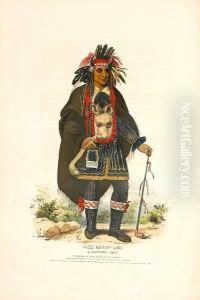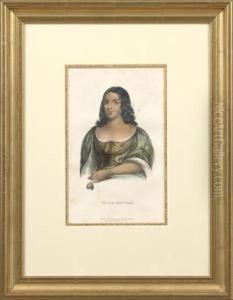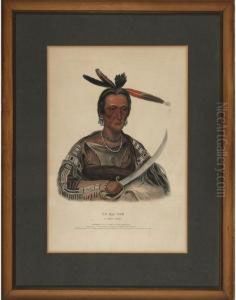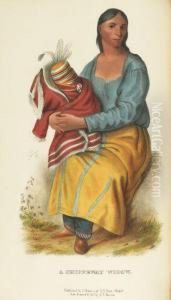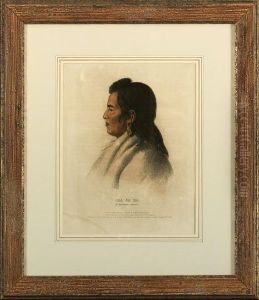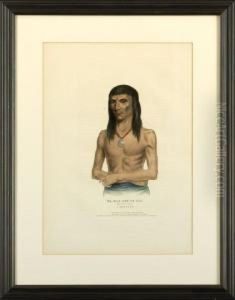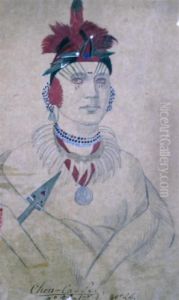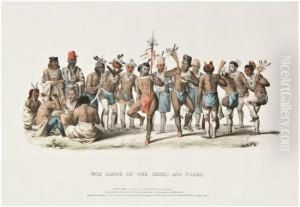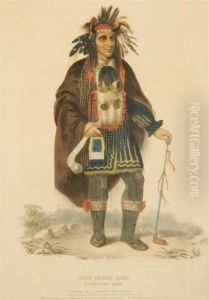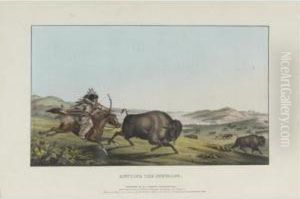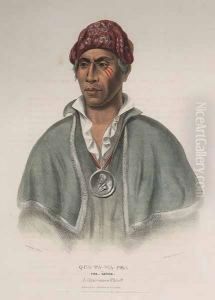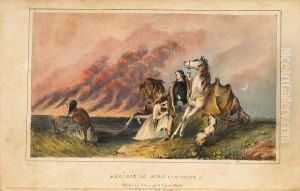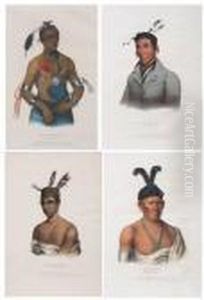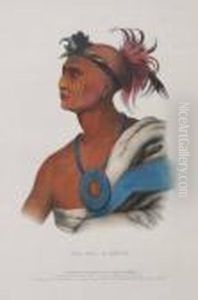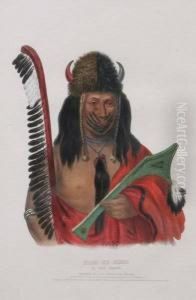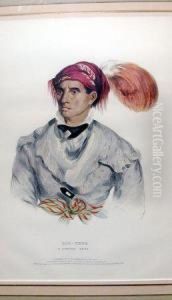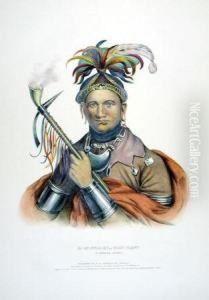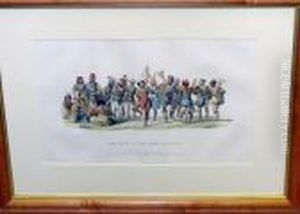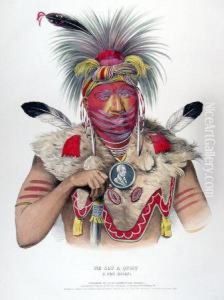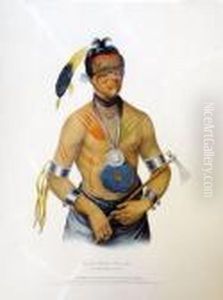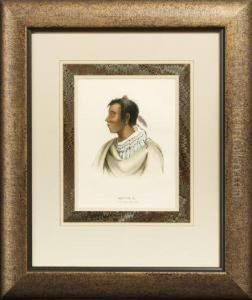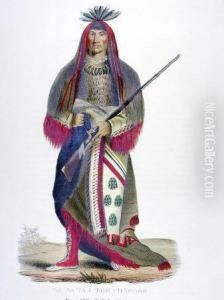Mckenney Thomas & Hall James Paintings
Thomas Loraine McKenney and James Hall were not artists themselves but are well-known for their collaborative work on the 'History of the Indian Tribes of North America,' a multi-volume collection of biographies and colorful portraits of Native American leaders and significant figures during the early 19th century. This collection is often referenced by the names 'McKenney and Hall,' denoting their partnership in the creation of this significant historical work.
Thomas L. McKenney was born in 1786 and served as the Superintendent of Indian Trade and later as the head of the United States Bureau of Indian Affairs. His role in these positions gave him the opportunity to meet and interact with various Native American leaders. McKenney believed in the 'noble savage' idea and wanted to preserve the history and culture of Native American peoples through the collection of portraits and biographies.
James Hall, born in 1793, was a lawyer, judge, and treasurer of the state of Illinois before he turned to writing. He became well-known as an author, particularly for his writings on the western frontier. Hall was responsible for the biographical sketches and essays that accompanied the portraits in the 'History of the Indian Tribes of North America.'
The portraits themselves were based on paintings originally commissioned by McKenney during his tenure at the Bureau of Indian Affairs and were painted by various artists such as Charles Bird King, Henry Inman, and others. These paintings were then turned into lithographs with the help of the Philadelphia firm of J. T. Bowen, and these lithographs were included in the volumes published by McKenney and Hall.
While McKenney’s intention was to create a record that would outlive the cultures and peoples that were rapidly changing under the pressure of American expansion, the methods and perspectives of McKenney and Hall reflect the complex and often paternalistic attitudes of their time towards Native Americans.
Thomas McKenney passed away in 1859, and James Hall predeceased him, dying in 1849. Despite their deaths, their work remains a significant, though controversial, document of Native American history and iconography, providing valuable, if sometimes romanticized, insights into how Native Americans were viewed and depicted in 19th-century American society.
